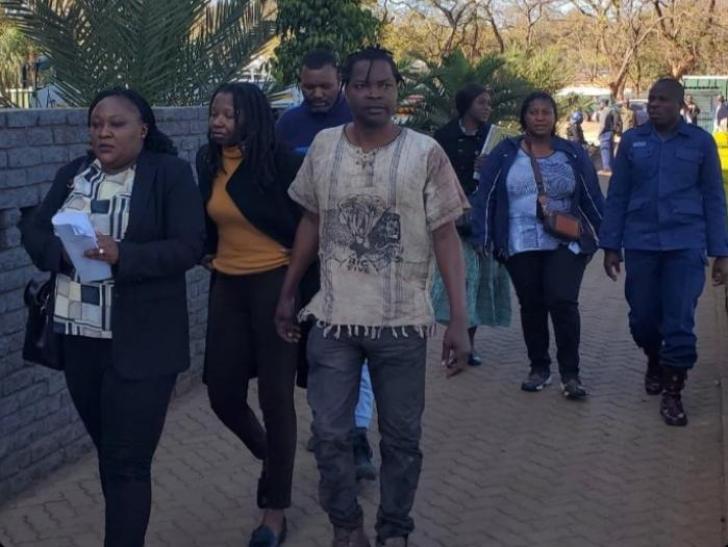News / National
Activists remain silent after arrest and detention
03 Oct 2024 at 12:26hrs |
0 Views

Following their dramatic arrest on 31 July 2024, prominent activists Robson Chere, Namatai Kwekweza, Samuel Gwenzi, and Vusumuzi Moyo have remained unwilling to engage with the media or other stakeholders. The four were seized by state agents while on a domestic commercial flight from Harare's Robert Mugabe International Airport to Victoria Falls and have since refused to talk about their ordeal.
Despite persistent attempts by various media outlets, the activists have declined all requests for interviews. Kwekweza, Chere, Gwenzi, and Moyo have even ignored messages sent by journalists, with some speculating that their silence could be attributed to fear, trauma, or other personal reasons.
Kwekweza and her colleagues sometimes don't even bother to acknowledge messages sent to them either out of fear, trauma, or something else, noted one observer.
The media's interest in their story has been fueled by the public outcry surrounding their arrest and subsequent detention. However, even the Zimbabwe Human Rights Commission, chaired by former opposition MP Jessie Majome, failed to engage the activists, as they refused to be interviewed for professional purposes.
A civil society source described the situation as unusual: "Their behaviour is weird because journalists worked hard covering their story, bringing it to public attention, and building pressure for authorities to release them. That ensured their safety. So, it's either they are doing that out of fear or for whatever reason."
Kwekweza, a well-known human rights advocate and founder of WELEAD Trust, along with her colleagues, were reportedly subjected to harsh conditions while in detention, with reports that Chere, the Secretary General of the Amalgamated Rural Teachers Union, was severely tortured.
While their reasons for staying silent remain unclear, their arrest has reignited concerns about the safety and freedom of activists in Zimbabwe, particularly those advocating for human rights, democracy, and better working conditions for teachers and students.
Despite persistent attempts by various media outlets, the activists have declined all requests for interviews. Kwekweza, Chere, Gwenzi, and Moyo have even ignored messages sent by journalists, with some speculating that their silence could be attributed to fear, trauma, or other personal reasons.
Kwekweza and her colleagues sometimes don't even bother to acknowledge messages sent to them either out of fear, trauma, or something else, noted one observer.
A civil society source described the situation as unusual: "Their behaviour is weird because journalists worked hard covering their story, bringing it to public attention, and building pressure for authorities to release them. That ensured their safety. So, it's either they are doing that out of fear or for whatever reason."
Kwekweza, a well-known human rights advocate and founder of WELEAD Trust, along with her colleagues, were reportedly subjected to harsh conditions while in detention, with reports that Chere, the Secretary General of the Amalgamated Rural Teachers Union, was severely tortured.
While their reasons for staying silent remain unclear, their arrest has reignited concerns about the safety and freedom of activists in Zimbabwe, particularly those advocating for human rights, democracy, and better working conditions for teachers and students.
Source - online
Join the discussion
Loading comments…









































